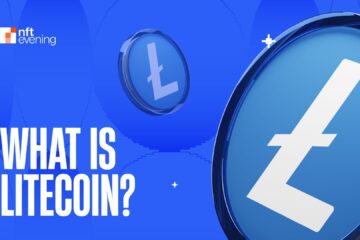As we step into 2024, it’s not just Bitcoin’s growth that is turning heads – the blockchain landscape is thriving at an unprecedented rate. A closer look at recent statistics unveils a compelling narrative of growth, diversification, and increased adoption across various demographics and geographies. In the United States alone, cryptocurrency ownership has leaped from 30% in 2023 to an impressive 40%, potentially encompassing up to 93 million American adults.
Source: CryptoProcessing.com Twitter
This surge is mirrored in the growing number of women engaging with digital currencies, where ownership rates have increased from 18% to 29% in just one year. Furthermore, the appetite for cryptocurrencies remains robust, with 63% of current American owners planning to expand their portfolios with leading currencies such as Bitcoin, Ethereum, Dogecoin, and Cardano.
Globally, the picture is equally promising, with countries like the UAE, Indonesia, and Brazil showcasing high adoption rates, whereas the UK demonstrates a more cautious but steadily growing interest in digital currencies.
These trends not only highlight the global reach and appeal of cryptocurrencies but also underscore the critical role of crypto processing solutions in facilitating this expansion.
Indeed, by enabling secure, efficient, and international transactions, crypto payment processors are at the heart of the digital currency revolution, offering businesses and consumers alike the opportunity to partake in the burgeoning digital economy.
Today, we aim to provide an overview of CryptoProcessing, explain why businesses might consider joining the bandwagon, explore both the advantages and disadvantages, and hint at which processor to use if you want to acquire the advantages combined with maintaining required security measures.
Let’s get started.
What is Crypto Processing?
At its core, crypto processing works by facilitating the acceptance of crypto payments while addressing the volatility and conversion challenges associated with cryptocurrencies. When a customer makes a purchase using a digital currency, the crypto payment gateway converts the cryptocurrency into a preferred fiat currency (e.g., USD, EUR) and transfers the amount to the merchant’s bank account. Alternatively, merchants have the option to retain payments in cryptocurrency, depending on their preference and risk tolerance. Businesses might look to integrate a crypto processing gateway for a range of reasons:
Global Reach: Cryptocurrencies are not bound by national borders, allowing businesses to accept payments from almost anywhere in the world without worrying about exchange rates or international transaction fees.
Lower Transaction Fees: Compared to traditional online payment methods, which can have fees as high as 3.5%, cryptocurrency transactions typically offer lower fees, resulting in savings for both businesses and customers.
Source: CryptoProcessing.com
Enhanced Security and Reduced Fraud: Thanks to blockchain technology, crypto transactions are encrypted and immutable, significantly lowering the risk of fraud and eliminating chargebacks, which can enhance a company’s liquidity.
Market Expansion: Accepting cryptocurrencies can attract customers who prefer using digital currencies, thereby expanding the merchant’s customer base.
Innovation and Competitive Edge: Offering crypto payments can position a business as forward-thinking and innovative, appealing to tech-savvy demographics and positioning the company as a leader in adopting new technologies.
Indeed, as the adoption of cryptocurrencies continues to accelerate, integrating a crypto payment solution can be a strategic move for businesses aiming to future-proof their operations and capitalise on the opportunities presented by the digital economy.
How Do Cryptocurrency Processors Work?
Cryptocurrency processors, or crypto payment gateways, operate at the intersection of traditional financial systems and the decentralised blockchain network, facilitating the acceptance of cryptocurrencies as payment for goods and services. From the perspective of a merchant, brand new to crypto processing, here’s what the process looks like:
1. Integration and Setup
Businesses first sign up with a cryptocurrency payment processor such as Crypto processing, creating a merchant account. This process involves specifying preferences for currency conversion, and settlement options, and selecting which cryptocurrencies to accept. The crypto payment gateway provides the merchant with an API or plugins compatible with various e-commerce platforms. This integration enables the merchant’s website to interact directly with the cryptocurrency processing system.
2. Payment Initiation
When a customer chooses to pay with cryptocurrency, the payment gateway dynamically generates a payment option at checkout, allowing the customer to select their preferred cryptocurrency. The payment processor also calculates the amount of cryptocurrency needed to complete the purchase based on real-time exchange rates, ensuring that the merchant receives the correct fiat equivalent for the product or service sold.
3. Invoice and Wallet Address Generation
An invoice is then usually generated, displaying the amount due in the selected cryptocurrency. This invoice includes a unique, temporary wallet address created by the payment gateway for the transaction, along with a QR code for convenience. A time-limited window is then set for the customer to initiate the payment. This is to mitigate the risk associated with the volatility of cryptocurrency prices.
4. Transaction Processing
The customer sends the specified amount of cryptocurrency to the provided wallet address using their crypto wallet. Next, the transaction is broadcast to the blockchain network, where it is verified by network participants (miners or validators) and added to the blockchain. This process secures the transaction and makes it immutable.
Once the transaction is confirmed on the blockchain, the cryptocurrency processor verifies the payment and notifies the merchant that the transaction is complete.
According to the merchant’s preferences, the processor either converts the cryptocurrency into the merchant’s chosen fiat currency and transfers it to their bank account or credits the cryptocurrency to the merchant’s digital wallet. This process involves leveraging the processor’s liquidity pools or external exchanges to facilitate the conversion.
5. Reporting and Reconciliation
Importantly, merchants are provided with detailed transaction reports, enabling them to reconcile payments received with orders placed, manage their accounting, and track their cryptocurrency holdings if they choose to retain some payments in digital form.
While this is a typical flow for a merchant looking to accept crypto payments, things can get more complicated depending on the case. For example, with play-to-earn gaming, channels would likely need to be set up as a payment method to handle a very large number of quick-fire transactions occurring over a short period of time, especially for currencies such as Bitcoin.
Types of Crypto Processing
There are more ways to process crypto transfers than you might think. Let’s take a look at the three main methods.
Cryptocurrency Payment Gateways: These platforms act as intermediaries between merchants and customers, enabling businesses to accept cryptocurrency payments for goods and services. Payment gateways convert received cryptocurrencies into fiat currency or allow merchants to keep them as digital assets.
The most common payment method observed in this case is where users make payments directly from their digital wallets by scanning a QR code or entering the recipient’s address. Wallets can be software-based (mobile or desktop applications) or hardware-based (physical devices).
Should they wish, merchants can generate payment links through their cryptocurrency payment gateway service, which can be sent to customers via email, SMS, or messaging apps. Clicking the link directs the customer to a payment portal where they can complete the transaction.
Also, for online merchants, integrating a “Pay with Crypto” button on their checkout page with the help of their crypto payment system allows customers to easily select their preferred cryptocurrency as a payment method, enhancing the user experience for crypto-savvy shoppers.
Crypto Point of Sale (PoS) Systems: Designed for physical retail environments, crypto PoS systems allow merchants to accept cryptocurrency payments in-person using dedicated hardware or software solutions. Customers can pay by scanning a QR code using their mobile wallet.
Direct Wallet-to-Wallet Transfers: This method bypasses intermediaries, allowing transactions directly between the payer’s and receiver’s digital wallets. While it reduces transaction fees, it lacks the conversion and instant settlement services provided by payment gateways.
Each of these crypto processing types and payment methods offers distinct advantages, from enhanced security and reduced fees to increased accessibility and convenience. The choice between them depends on the specific needs of the business or individual, including their transaction volume, preferred cryptocurrencies, and whether they prioritise instant fiat conversion or are willing to hold cryptocurrencies as an investment.
Advantages of Crypto Payment Gateways
Lower Transaction Fees: Compared to traditional payment gateways, crypto payment gateways often have lower transaction fees, which can lead to cost savings for both merchants and consumers.
Global Transactions: They facilitate seamless international payments without the need for currency conversion fees or delays, making it easier for businesses to expand globally.
Enhanced Security: Utilising blockchain technology, crypto payments offer enhanced security features, such as encryption and immutability, significantly reducing the risk of fraud and chargebacks.
Instant Transactions: Crypto transactions can be processed faster than traditional bank transfers, especially for international payments, improving cash flow and customer satisfaction.
Innovation and Market Expansion: Accepting cryptocurrencies can position a business as forward-thinking, potentially attracting new customers interested in using digital currencies for transactions.
Disadvantages of Crypto Payment Gateways
Price Volatility: The value of cryptocurrencies can be highly volatile, posing a risk to merchants and consumers who may see the value of a transaction change significantly in a short period.
Regulatory Uncertainty: The regulatory landscape for cryptocurrencies is still evolving, with potential implications for businesses in terms of compliance, legal requirements, and tax obligations.
Technical Complexity: Implementing and managing a crypto payment gateway requires a certain level of technical understanding, which might be a barrier for some businesses. In addition, integrating crypto payment gateways with existing financial and accounting systems can be complex, requiring additional effort and resources.
Security Concerns: Despite the inherent security features of blockchain, crypto wallets and exchanges have been targets of high-profile hacks, raising concerns about the security of holding and transacting in cryptocurrencies.
Considering a crypto payment gateway must weigh these factors carefully to determine if the benefits align with their strategic goals and operational capabilities.
Remember, each of these potential disadvantages can be mitigated through the use of a cryptocurrency payment gateway, such as CryptoProcessing.com, that offers rate guarantees and instant fiat conversion. Such gateways streamline the onboarding process, ensure regulatory compliance and offer enhanced security measures.
Throughout our discussion, we’ve highlighted CryptoProcessing.com numerous times, and not without good reason. It’s recognized for its unparalleled security, leadership in the field, and offering some of the most attractive fee structures available on the market.
Last year, CryptoProcessing.com earned the top spot for cryptocurrency processing services at the EGR B2B Awards 2023, underlining its esteemed position in the industry. Beyond being one of the leading choices among crypto payment gateways, the company boasts an impressive experience spanning over ten years in the cryptocurrency sector, guaranteeing the safety of customer funds without requiring setup or monthly fees.
Servicing hundreds merchant accounts and managing upwards of €700M in crypto transactions each month, CryptoProcessing.com has proven its capability to efficiently process large volumes of transactions.
Moreover, this payment processor extends its services beyond just e-commerce, making a name for itself in diverse sectors like iGaming, retail, and luxury goods.
Thus, for merchants anywhere in the world, regardless of their legit industry, looking for a trusted and effective solution to process crypto payments, CryptoProcessing.com emerges as the prime choice. The platform also offers an exclusive crypto wallet for businesses, further enhancing its crypto processing services.
Final thoughts
With the significant growth in cryptocurrency adoption across various demographics and regions, the need for robust, secure, and efficient cryptocurrency payment gateway solutions has never been more critical.
Businesses and consumers alike are seeking ways to navigate the dynamic landscape of digital currencies, and the advantages of leveraging crypto payment gateways are compelling. From lower transaction fees and global transaction capabilities to enhanced security and market expansion opportunities, the benefits are vast.
However, it’s essential to approach crypto payment gateways with an understanding of the challenges they present, including price volatility, regulatory uncertainty, and technical complexities. The key to overcoming these obstacles lies in selecting the right crypto processing partner—one that not only mitigates risks but also maximises the potential of digital currency transactions.
CryptoProcessing.com stands out in this space, offering unparalleled security, competitive fees, and a decade of expertise in the cryptocurrency domain. Recognized for its excellence and reliability, CryptoProcessing.com is the ideal choice for merchants looking to harness the advantages of crypto payments while navigating the challenges with confidence.
If you’re ready to embark on the journey toward integrating crypto payments into your business, CryptoProcessing.com invites you to take the first step. Visit their site and fill out the form to get started. A sales representative will be in touch, ready to guide you through the process of unlocking the full potential of cryptocurrency payment gateway for your business. Embrace the future of finance today with CryptoProcessing.com.
All investment/financial opinions expressed by NFTevening.com are not recommendations.
This article is educational material.
As always, make your own research prior to making any kind of investment.
 Bitcoin
Bitcoin  Ethereum
Ethereum  Tether
Tether  XRP
XRP  Solana
Solana  USDC
USDC  TRON
TRON  Lido Staked Ether
Lido Staked Ether  Dogecoin
Dogecoin  Figure Heloc
Figure Heloc  Cardano
Cardano  Bitcoin Cash
Bitcoin Cash  Wrapped stETH
Wrapped stETH  WhiteBIT Coin
WhiteBIT Coin  Wrapped Bitcoin
Wrapped Bitcoin  Wrapped eETH
Wrapped eETH  USDS
USDS  Chainlink
Chainlink  Binance Bridged USDT (BNB Smart Chain)
Binance Bridged USDT (BNB Smart Chain)  Monero
Monero  LEO Token
LEO Token  WETH
WETH  Stellar
Stellar  Coinbase Wrapped BTC
Coinbase Wrapped BTC  Sui
Sui  Ethena USDe
Ethena USDe  Litecoin
Litecoin  Zcash
Zcash  Avalanche
Avalanche  Hyperliquid
Hyperliquid  Shiba Inu
Shiba Inu  Hedera
Hedera  Canton
Canton  USDT0
USDT0  World Liberty Financial
World Liberty Financial  sUSDS
sUSDS  Dai
Dai  Toncoin
Toncoin  Cronos
Cronos  Ethena Staked USDe
Ethena Staked USDe  PayPal USD
PayPal USD  Polkadot
Polkadot  Uniswap
Uniswap  USD1
USD1  Mantle
Mantle  MemeCore
MemeCore  Rain
Rain  Bittensor
Bittensor 


